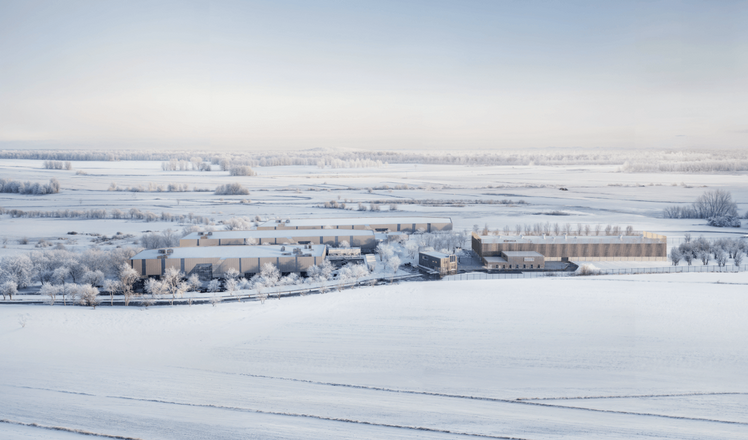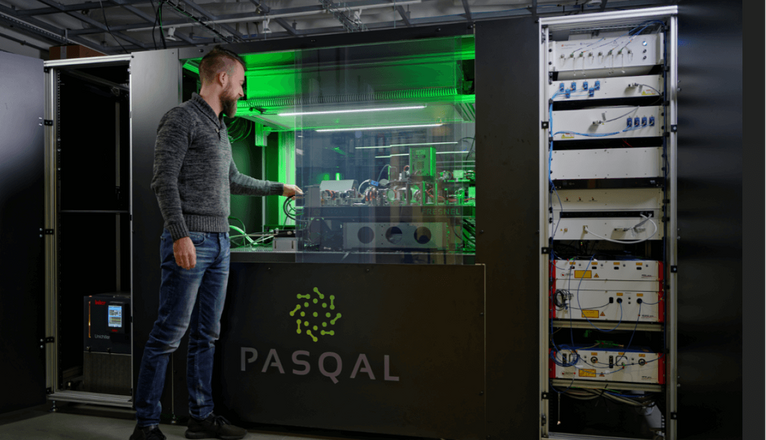
Sweden is moving closer to establishing Europe’s first generation of nuclear-powered data centers, as three key players – Blykalla, evroc, and Studsvik – have signed a Memorandum of Understanding (MoU) to explore the construction of such facilities at Studsvik’s licensed nuclear site in Nyköping.
The agreement marks a convergence of advanced nuclear innovation and hyperscale digital infrastructure aimed at addressing the twin challenges of energy reliability and the soaring power demands of artificial intelligence.
Under the partnership, Swedish nuclear startup Blykalla will provide its advanced lead-cooled small modular reactor (SMR) technology, designed to deliver clean, affordable, and continuous baseload energy. Evroc, a Stockholm-based company developing hyperscale cloud and AI infrastructure across Europe, will contribute the data center expertise.
Studsvik, a 75-year-old company operating one of Sweden’s few licensed nuclear facilities, will bring regulatory experience, lifecycle management, and site capabilities that include fuel, materials, and waste handling. Together, the trio intends to position Sweden as a European leader in the deployment of nuclear-powered AI infrastructure.
Nuclear-powered data centers have recently gained global traction as data processing and AI workloads drive exponential growth in electricity demand. Small modular reactors – compact, factory-built power systems – are increasingly viewed as a viable option to provide localized, zero-emission energy to critical digital infrastructure. Unlike conventional reactors, SMRs can be co-located with industrial facilities or data centers, offering both scalability and energy sovereignty while avoiding dependence on fossil fuels or volatile grids.
Through the MoU, Blykalla, evroc, and Studsvik will collaborate on a feasibility assessment covering technical design, commercial models, and regulatory pathways for hosting SMRs and hyperscale data centers on the same licensed site. The agreement also involves discussions with municipal stakeholders and landowners and could lead to a future commercial power purchase arrangement once the project proves viable.
Climate-Neutral Digital Infrastructure
According to Blykalla’s CEO, Jacob Stedman, the collaboration represents a major opportunity to demonstrate how small modular reactors can power the AI revolution while ensuring climate neutrality. “Sweden can take a leading role in digital infrastructure by showing that SMRs provide the stable, fossil-free energy the AI era demands,” he said, noting that the Studsvik site and evroc’s goals provide the “ideal foundation for a transformative project.”
Evroc, which plans to build ten hyperscale data centers across Europe by 2030, emphasized the urgency of developing climate-resilient, high-performance AI infrastructure. Its founder and CEO, Mattias Åström, described the partnership as a potential paradigm shift. “The world’s demand for AI compute is rising at an unprecedented rate,” he said. “Through this collaboration with Blykalla and Studsvik, Sweden has the chance to lead the way in building climate-neutral digital infrastructure.”
Studsvik’s CEO, Karl Thedéen, underscored the unique opportunity to combine next-generation nuclear innovation with industrial-scale digital growth. “Our licensed nuclear site and decades of experience create a distinctive platform for integrating advanced nuclear with the next wave of technology,” he stated, calling the agreement “a crucial step in realizing these synergies.”
A joint steering group will now be established to oversee feasibility work and evaluate both the technical layout and business model. Formal partnership negotiations are expected to begin later this year, with the long-term goal of developing a new class of data centers powered entirely by clean nuclear energy.
For Sweden – and Europe at large – the collaboration could mark a pivotal step toward energy-secure, low-carbon AI infrastructure. If successful, it would not only expand Sweden’s nuclear innovation ecosystem but also redefine how critical digital workloads are powered in an era where both energy resilience and sustainability have become strategic imperatives.





